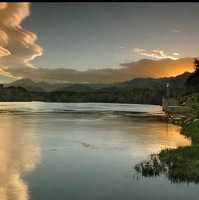Difference between revisions of "Lake"
m (Text replacement - "http://nordan.daynal.org" to "https://nordan.daynal.org") |
m (Text replacement - "http://" to "https://") |
||
| Line 3: | Line 3: | ||
==Etymology== | ==Etymology== | ||
[https://nordan.daynal.org/wiki/index.php?title=English#ca._1100-1500_.09THE_MIDDLE_ENGLISH_PERIOD Middle English], from [https://nordan.daynal.org/wiki/index.php?title=English#ca._600-1100.09THE_OLD_ENGLISH.2C_OR_ANGLO-SAXON_PERIOD Old English], Anglo-French, & [[Latin]]; Old English lacu stream, pool, from Latin lacus lake, pool, pit & Anglo-French lac pit, from Latin lacus; akin to Old English lagu sea, [[Greek]] lakkos pond | [https://nordan.daynal.org/wiki/index.php?title=English#ca._1100-1500_.09THE_MIDDLE_ENGLISH_PERIOD Middle English], from [https://nordan.daynal.org/wiki/index.php?title=English#ca._600-1100.09THE_OLD_ENGLISH.2C_OR_ANGLO-SAXON_PERIOD Old English], Anglo-French, & [[Latin]]; Old English lacu stream, pool, from Latin lacus lake, pool, pit & Anglo-French lac pit, from Latin lacus; akin to Old English lagu sea, [[Greek]] lakkos pond | ||
| − | *Date: [ | + | *Date: [https://www.wikipedia.org/wiki/12th_Century 12th century] |
==Definition== | ==Definition== | ||
*a considerable inland [[body]] of standing [[water]]; also : a pool of other liquid (as lava, oil, or pitch) | *a considerable inland [[body]] of standing [[water]]; also : a pool of other liquid (as lava, oil, or pitch) | ||
==Description== | ==Description== | ||
| − | A '''lake''' (from [[Latin]] lacus) is a terrain feature (or [[physical]] feature), a [[body]] of liquid on the [[surface]] of a world that is localized to the bottom of basin (another type of landform or terrain feature; that is, it is not global). Another definition is a [[body]] of fresh or salt [[water]] of considerable size that is surrounded by land. On [[Earth]] a body of [[water]] is [[considered]] a lake when it is inland, not part of the [[ocean]], is larger and deeper than a pond. The only world other than [[Earth]] known to harbor lakes is [ | + | A '''lake''' (from [[Latin]] lacus) is a terrain feature (or [[physical]] feature), a [[body]] of liquid on the [[surface]] of a world that is localized to the bottom of basin (another type of landform or terrain feature; that is, it is not global). Another definition is a [[body]] of fresh or salt [[water]] of considerable size that is surrounded by land. On [[Earth]] a body of [[water]] is [[considered]] a lake when it is inland, not part of the [[ocean]], is larger and deeper than a pond. The only world other than [[Earth]] known to harbor lakes is [https://en.wikipedia.org/wiki/Titan_(moon) Titan], [https://en.wikipedia.org/wiki/Saturn Saturn]'s largest [[moon]], which has lakes of [https://en.wikipedia.org/wiki/Ethane ethane], most likely mixed with [https://en.wikipedia.org/wiki/Methane methane]. It is not known if Titan's lakes are fed by [[rivers]]; Titan's [[surface]] is carved by numerous river beds. There is [[evidence]] that [https://en.wikipedia.org/wiki/Mars Mars] once held lakes of [[water]]. |
| − | [[Natural]] lakes on [[Earth]] are generally found in mountainous areas, rift zones, and areas with ongoing or recent [ | + | [[Natural]] lakes on [[Earth]] are generally found in mountainous areas, rift zones, and areas with ongoing or recent [https://en.wikipedia.org/wiki/Glacier glaciation]. Other lakes are found in endorheic basins or along the [[course]]s of [[mature]] [[rivers]]. In some parts of the world there are many lakes because of chaotic drainage [[patterns]] left over from the last [https://en.wikipedia.org/wiki/Ice_Age Ice Age]. All lakes are [[temporary]] over [[geologic time scale]]s, as they will slowly fill in with sediments or spill out of the basin containing them.[https://en.wikipedia.org/wiki/Lake] |
[[Category: Earth Science]] | [[Category: Earth Science]] | ||
Latest revision as of 01:22, 13 December 2020
Etymology
Middle English, from Old English, Anglo-French, & Latin; Old English lacu stream, pool, from Latin lacus lake, pool, pit & Anglo-French lac pit, from Latin lacus; akin to Old English lagu sea, Greek lakkos pond
- Date: 12th century
Definition
- a considerable inland body of standing water; also : a pool of other liquid (as lava, oil, or pitch)
Description
A lake (from Latin lacus) is a terrain feature (or physical feature), a body of liquid on the surface of a world that is localized to the bottom of basin (another type of landform or terrain feature; that is, it is not global). Another definition is a body of fresh or salt water of considerable size that is surrounded by land. On Earth a body of water is considered a lake when it is inland, not part of the ocean, is larger and deeper than a pond. The only world other than Earth known to harbor lakes is Titan, Saturn's largest moon, which has lakes of ethane, most likely mixed with methane. It is not known if Titan's lakes are fed by rivers; Titan's surface is carved by numerous river beds. There is evidence that Mars once held lakes of water.
Natural lakes on Earth are generally found in mountainous areas, rift zones, and areas with ongoing or recent glaciation. Other lakes are found in endorheic basins or along the courses of mature rivers. In some parts of the world there are many lakes because of chaotic drainage patterns left over from the last Ice Age. All lakes are temporary over geologic time scales, as they will slowly fill in with sediments or spill out of the basin containing them.[1]
